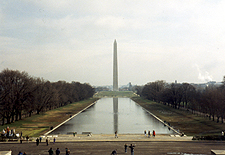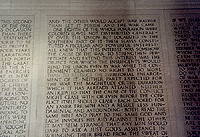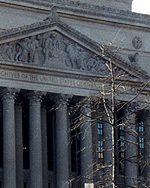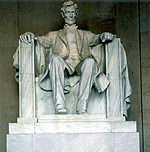
36 Points in regards to the Pittsburgh Nightmare Caseby Liz BroughWhen a lawyer takes a case he doesn't simply wait until trial time, and then go in and have his say. He must prepare a case for trial. In a civil case he must investigate every angle, interview every potential witness, subpoena records and take sworn depositions of anybody who may have information pertaining to the case at hand. This process is called discovery. In addition, in every federal court district there are certain rules and procedures that an attorney must follow.  1. Neither my husband, Nick, myself, nor my brother John, nor any of the other people involved in fund-raising had anything to do with the hiring of the attorney. We had never heard of him. He was hired by Jim Kopp, who undertook to interview and select the attorney for the case. We were told that Mr. Washburn was an excellent attorney, had been involved in pro-life since the 70's, knew the federal courts well, and had given up a comfortable Wall Street career to devote himself full time to representing pro-lifers. We were asked in the fall of 1990 to have the fund-raising ads and letters use our address. We were asked to open a savings account and deposit the money that came in, and to send it along to Mr. Washburn. We were not hired to supervise, advise, or otherwise oversee Mr. Washburn. Neither of us are attorneys.
1. Neither my husband, Nick, myself, nor my brother John, nor any of the other people involved in fund-raising had anything to do with the hiring of the attorney. We had never heard of him. He was hired by Jim Kopp, who undertook to interview and select the attorney for the case. We were told that Mr. Washburn was an excellent attorney, had been involved in pro-life since the 70's, knew the federal courts well, and had given up a comfortable Wall Street career to devote himself full time to representing pro-lifers. We were asked in the fall of 1990 to have the fund-raising ads and letters use our address. We were asked to open a savings account and deposit the money that came in, and to send it along to Mr. Washburn. We were not hired to supervise, advise, or otherwise oversee Mr. Washburn. Neither of us are attorneys.2. This case was filed as both a defendant and plaintiff class action. Both certifications were eventually denied by the courts because this case did not fulfill the requirements of either. I have since found out, in discussions with another attorney, that defendant class actions are extremely rare and almost never successful. 3. Mr. Washburn and the Legal Center initially agreed to handle this case for $60,000. After this was raised they came back and pressured us to raise more money. At first we refused to do so, but after considerable pressure we relented. There after Mr. Washburn or the Legal Center were given at least $2,000 a month, from September 1992 to May 1997. 4. It was very important to the 60 abused women that their tormentors be held individually responsible for what was done. (The guards had removed their badges) In 1991 the county released the names of all the jail guards on duty during the incident. Larry Washburn ignored this list of names, and we never knew he had them. 5. A local pro-life attorney drafted a set of interrogatories (questions) for Mr. Washburn to submit to the guards. Her efforts were rebuffed by Mr. Washburn. Not a single jail guard had to answer interrogatories. In fact, nothing at all was done with this valuable and important information. 6. This same local attorney advised Mr. Washburn that his complaint was not strong, had many poorly thought out legal ideas, and that this case was not going to be certified as a class action. She begged him to revise the complaint in order to strengthen the case. He would not listen to her. She left the case in frustration. We never heard the details of why she left. I suppose she did not want to get involved in a fight over legal issues and come across as a mean spirited or pushy person. Despite her misgivings she still felt he had the best interest of the plaintiffs in mind. 7. At the beginning of the case, the local attorney gave Mr. Washburn a copy of the handbook for local rules and procedures in the Federal District Court of Western Pennsylvania. 8. Five of the women victims were named on the original complaint. by 1993 the courts denied bringing the other women in as a "class" in a class action lawsuit, and gave Mr. Washburn 18 days to name the women as individual plaintiffs. Mr. Washburn did not do so. After a year and a month he did add 4 women as plaintiffs and a month after that, 2 more. The courts denied the additional plaintiffs since they were filed over a year after the time period was up. Mr. Washburn appealed this decision twice, all the way to the Supreme Court, adding over two years to the length of the case. 9. The City of Pittsburgh was obligated under the rules of discovery to turn over the names of the police officers on duty at the time of the arrests. Mr. Washburn made no attempt to have them do so. 10. Mr. Washburn made no attempt to subpoena any records of the city or county. 11. Mr. Washburn lost contact with nearly all of the 60 women involved in this case. Most of the women never even received a letter from Mr. Washburn. 12. The PNLDF committee offered to pay for a private investigator to track down any missing jail guards (we had no idea he had a list of their names), police officers, or city and county workers who may have witnessed the abuse. Mr. Washburn repeatedly told us he would take advantage of this offer and never did so. 14. Mr. Washburn was given contacts on the police force prior to the rescue who had told us there were orders to "get tough" on rescuers. Mr. Washburn assured me personally that he would follow up this lead. He made no attempt to do so. 15. In 1994, Mr. Washburn told us he would be in Pittsburgh for several weeks at a time to take depositions and complete discovery on this case. We rented a furnished apartment for him at $500 per month. However, Mr. Washburn never spent more than a few days a month in this expensive apartment. We told him this was draining the fund dry and could no longer afford it, yet he insisted that he was going to be spending a lot of time in Pittsburgh. So we would continue to rent the apartment. This went on for six months. The furnished apartment was almost never used. 16. When visiting Pittsburgh, Mr. Washburn wore clothing that was obviously worn and patched. We took this to mean that he was living a very simple and modest life and was not making a great financial gain out of the pro-life cases he worked on. 17. The county insisted that Mr. Washburn come in to Pittsburgh to oversee their deposition of the women plaintiffs. During this time the County made available the warden for deposition and once again gave Mr. Washburn the names of the jail guards and indicated they would be made available for deposition. The only deposition taken by our side was that of the warden. Mr. Washburn had another local attorney, a Mr. Conflenti, conduct that deposition. Mr. Conflenti did not charge for his services. This is the only act of discovery that our side did, and it was done at the request of the other side. 18. During his deposition, the warden indicated that a pro-abortion county commissioner was on the phone constantly with the jail monitoring the situation. Yet this lead hinting at the county's knowledge of and involvement in the horrendous abuse of women rescuers was never followed up by Mr. Washburn, despite the pleading of one plaintiff that he follow this up. 19. During this time, Mr. Washburn made no attempt to proceed with discovery against the City of Pittsburgh. 20. Mr. Washburn repeatedly said he was going to hire expert witnesses to bolster our case. Yet he never once made an attempt to contact any, never gave us any names or what the cost would be. As the trial drew near, I, nine months pregnant and due to go into labor at any time, attempted to drum up an expert police witness. I gave Mr. Washburn a contact and he assured me that he would follow it up. He never did. We had no expert witnesses in this trial despite Mr. Washburn's repeated assurances that we would.  21. Because Mr. Washburn initiated no discovery against the city and county, and in fact, had not built a case against them at all, the city and county were dropped from the case two weeks before the scheduled trial. This left only the warden and the estate of the now deceased assistant police chief as defendants in their personal capacity only, not in their professional capacity.
21. Because Mr. Washburn initiated no discovery against the city and county, and in fact, had not built a case against them at all, the city and county were dropped from the case two weeks before the scheduled trial. This left only the warden and the estate of the now deceased assistant police chief as defendants in their personal capacity only, not in their professional capacity.22. Several days before the expected trial the warden offered to settle for a sum of $4000 for each of the five plaintiffs. Mr. Washburn made every effort to convince all of the women to take the settlement. He did not appear to want to go to trial. 23. John Broderick, who Mr. Washburn had brought in to help in the trial phase, called the plaintiffs to convince them to take the settlement. His manner was bullying, belligerent and offensive to the women. They all complained and were deeply offended at what they called his threatening manner. 24. Mr. Washburn claimed to be concerned that the women would be held liable for court costs if they proceeded to trial. He claimed this is why he wanted them to take the settlement. In the end, three of the women accepted the offer and two refused and went to trial. 25. Doris Grady asked Mr. Washburn not to use John Broderick as a trial attorney. Mr. Washburn assured Doris that he was not going to use Mr. Broderick as trial attorney and told her that he had his own opening statement memorized. At the trial, however, Mr. Washburn never gave an opening statement, and used Mr. Broderick as the trial attorney. 26. Just before the trial nearly all of our proposed witnesses, approximately 15 people, were refused by the court to testify. This is because Mr. Washburn had not filed the proper papers to get them admitted as witnesses. In a letter to opposing counsel Mr. Washburn indicates that he knew the procedure for federal court to admit witnesses. He did not follow this procedure and was advised by opposing counsel that he needed to file a motion, which he refused to do. Because Mr. Washburn did not follow proper procedure and did not file a motion to name our witnesses all of our proposed witnesses were deleted except for the two remaining plaintiffs. As indicated before, Mr. Washburn was given a copy of the handbook for local rules and procedures in the Federal District Court. 27. One of the two remaining plaintiffs had so little trust in Mr. Washburn and Mr. Broderick, that she insisted they not represent her at trial. The original local attorney, who had dropped out years ago, was pressed back into service to represent her at trial. The other plaintiff allowed Mr. Broderick to represent her. 28. In the days before the trial, meetings were held with the women plaintiffs and potential witnesses to rehearse them for trial. During the entire time Mr. Washburn allowed the trial attorneys to rehearse the witnesses offering no input of his own. In fact, he sat in a chair off by himself busily writing notes about an entirely different, unrelated case. 29. John Broderick, who was supposed to represent this woman, did not seem to know anything about the case. He was completely unfamiliar with it, and did not seem to understand the issues involved. 30. By the day of the trial the case was a shadow of its former self. It had begun as a case of 60 women against the City of Pittsburgh, County of Allegheny, Warden and Assistant Police Chief in both their personal and professional capacities and could have included the names of the actual abusers: the police officers and jail guards who committed these crimes against the women. By trial date all that was left were two lone women against the warden in his personal capacity only, with no witnesses for our side! The case was in a shambles. 31. Mr. Washburn failed to enter as evidence the medical records of one of the plaintiffs. 32. The day the trial began a visibly frustrated federal judge called our attorneys to his chambers and told them, "you had a hell of a case here and you didn't do anything with it!" 33. During the trial Mr. Washburn wore the exact same shirt, tie and pants to court 11 days in a row. However, people who know him in New York say he dresses in newer clothes. 34. Mr. Washburn was paid $60,000 initially and then $2000 per month. This totals $200,000 paid to Mr. Washburn and the Legal Center for the Defense of Life. That does not include the expenses of advertising and sending out letters on Mr. Washburn's behalf in order to raise the money, nor does it include fees for other attorneys, rent, etc. The total raised by my husband and myself is nearly $360,000 over 7 years. Doris Grady raised about $20,000 before we got involved as fund-raisers. 35. After the trial the opposing side offered not to pursue court costs if the remaining plaintiffs would agree not to appeal. The women seemed ready to go along with this, since they were emotionally exhausted and upset by the trial. Despite this, Mr. Washburn took the train into Pittsburgh to scuttle the deal. He managed to convince two women to appeal The opposing side then went ahead and asked for court costs and there was a partial judgement against the two appellees for several thousand dollars. Please go back and read point #24.  36. In the later months when some of the plaintiffs indicated they wanted out of the appeal, Mr. Washburn sent a letter to all involved stating, "I will continue the appeal whether my clients want me to or not."
36. In the later months when some of the plaintiffs indicated they wanted out of the appeal, Mr. Washburn sent a letter to all involved stating, "I will continue the appeal whether my clients want me to or not."After this case was completed we called several pro-lifers in the New York area for more information on Mr. Washburn. We wanted to know what kind of attorney could handle the case they way he had. The following points are my opinion as to Mr. Washburn and the Pittsburgh Nightmare case:1. I believe Mr. Washburn is a competent, capable attorney. He has a reputation in New York as a highly successful Wall Street attorney with over 30 years of experience.2. I do not believe Mr. Washburn is lazy, negligent or greedy. 3. Mr. Washburn is part of a legal center that raises tens of thousands of dollars per year. He does not function alone. 4. Mr. Washburn and Mr. Broderick often work together. 5. The judge in this case was very fair. He gave Mr. Washburn ample opportunity to build his case. 6. The jury in this case came back with the only verdict possible given the evidence presented. Do not blame the jury if they never heard a powerful case for our side. Hugh Finn An Emty Cradle, A Full Heart 36 points in regards to the Pittsburg Nightmare Case Moral madness, moral insanity The myth of safe abortions |

